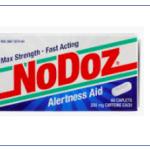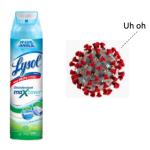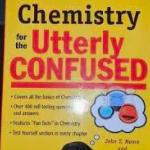I recently wrote about two products, both Lysol sprays, which got the nod from the EPA to make an anti-COVID claim, but noted that there
Chemicals & Chemistry
It's been pretty much impossible to buy a can of Lysol spray since the COVID nightmare began about seven months ago.
Although it is difficult to come up with many benefits from an unprecedented deadly global pandemic, there is one, albeit mostly inconsequential nugget that we junk science chasers at ACSH should at least acknowledge.
Q: What's worse than being in the middle of a coronavirus pandemic?
A: Being in the middle of a coronavirus pandemic and having to read about synthetic organic chemistry.
Yet, here we are, so pay attention.
By Michael Dourson, Bernard K. Gadagbui, and Patrician M. McGinnis
We have all heard the saying “Too much of a good thing.” This applies to foods, drinks and many kinds of activities. This saying also applies to chemicals we “hear” about in our daily news.
Note: This article is republished with permission from the
Toxicology, the study of poisons, is often thought of as a new discipline. It’s not. It has been around as long as people have been trying out different types of food, and using the occasional poisonous plant, or animal, to dispatch a rival.
Chemical phobia is a prevalent theme in today’s social media, and chemicals often written up in mainstream news outlets in negative terms. But have you ever stopped to think about the sources of this information? How many of the source












